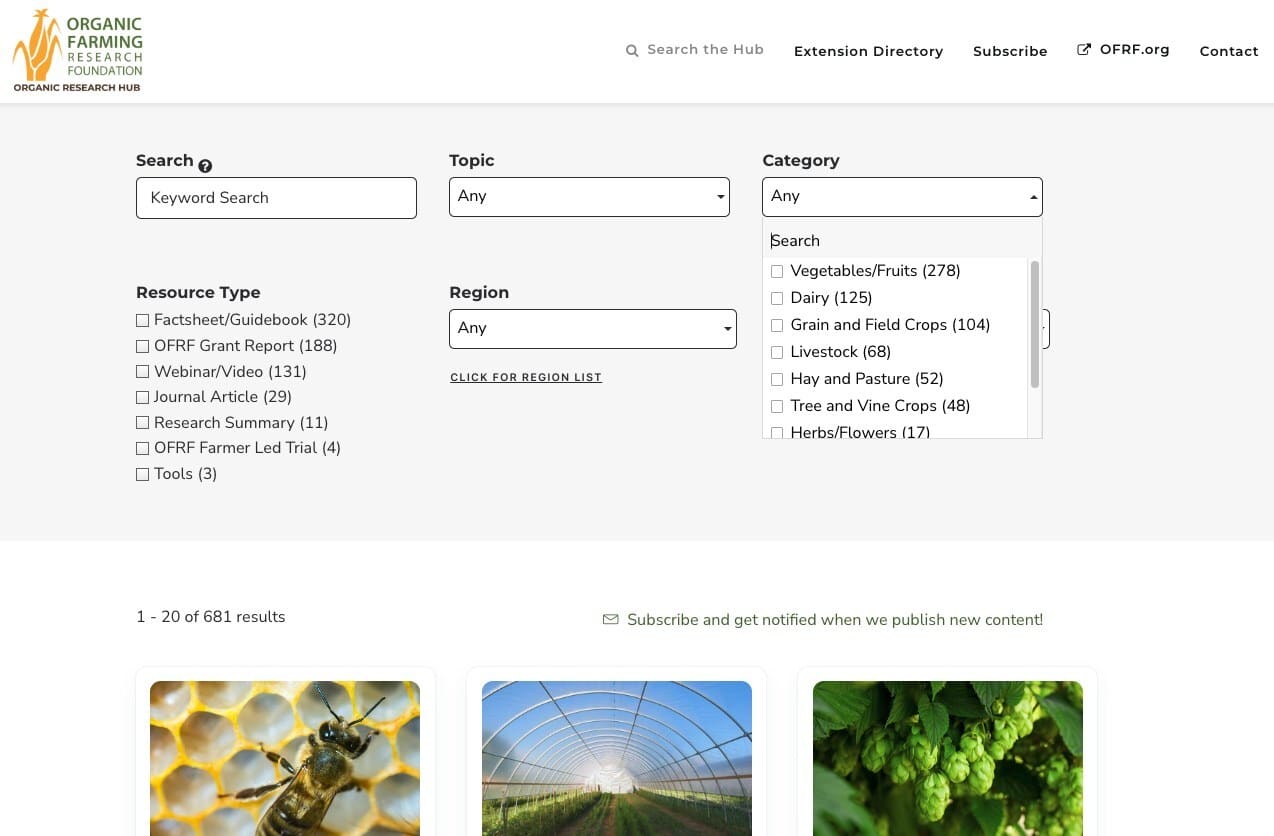Key Takeaways:
- The Organic Farming Research Foundation (OFRF) has launched the Organic Research Hub, a centralized platform for organic and transitioning farmers.
- Farmers can search by keyword, crop type, region, topic, and more to access science-based tools and resources.
- The Hub includes nearly 200 final reports from OFRF-funded research, along with factsheets, guides, and webinars.
- A national Organic Extension Directory helps connect farmers with local experts.
- The initiative addresses the research funding gap for organic agriculture, which receives less than 2% of USDA funding.
OFRF Introduces the Organic Research Hub
The Organic Farming Research Foundation (OFRF) announced the official launch of the Organic Research Hub, an online platform providing streamlined access to a broad range of technical resources for organic and transitioning farmers. Developed to address production challenges using credible, science-based information, the platform is now available at organicresearchhub.org.
“This is about access,” said Brise Tencer, Executive Director at OFRF. “Organic producers need it, but any farmer interested in sustainable, non-chemical practices can benefit from it.”
What the Organic Research Hub Offers
Tailored Search and Practical Tools
The Organic Research Hub offers a searchable database of materials, including:
- Research summaries
- Webinars and videos
- Technical guides and factsheets
- Nearly 200 OFRF-funded final research reports
Users can search by keyword, production topic, crop type, geographic region, date, and resource type. Customized content alerts are also available.
Connecting Farmers to Experts
The Hub features a national Organic Extension Directory, enabling producers to connect with agricultural experts in their region for targeted support.
OFRF Addresses a Persistent Knowledge Gap
Despite organic foods representing over 6% of U.S. food sales, organic agriculture receives less than 2% of USDA research funding. The Organic Farming Research Foundation developed the Organic Research Hub to help close this gap.
“Farmers don’t have time to dig through journals or outdated PDFs,” said Dr. Heather Estrada, Senior Scientist for Research and Education at OFRF. “They need credible resources they can use in the field—and that’s exactly what this tool provides.”
Farmer Feedback Highlights Real-World Benefits
For producers like Jordan Settlage of Settlage & Settlage Farms in Ohio, the Hub has already proven useful: “In less than a minute, I found exactly what I needed—from credible sources I trust. That’s a big deal,” he said. “I can use it to make real decisions for our farm.”
Next Steps for the Organic Research Hub
The Organic Research Hub will continue to expand with contributions from institutions such as:
- Sustainable Agriculture Research and Education (SARE)
- The Organic Center
- ATTRA (National Sustainable Agriculture Information Service)
- Land-grant universities and other research organizations
With the support of the Organic Farming Research Foundation, the platform aims to offer equitable, up-to-date agricultural research to support soil health, regenerative practices, and climate resilience for the organic sector.


